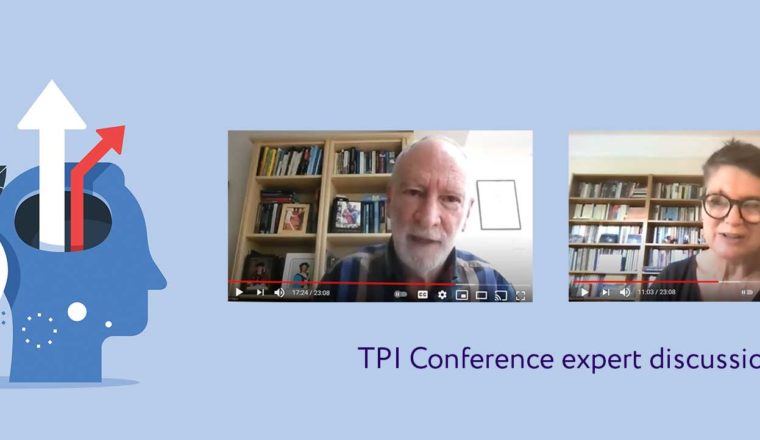The triple bottom line and AI – new ways of thinking about productivity
How can Artificial Intelligence (AI) enhance productivity levels across various sectors? While it can significantly optimise business processes – from automating mundane tasks to complex data analyses – it also presents challenges in potential job displacement and the propagation of biases. Research Assistant Daniel Williams writes about the Scotland Productivity Forum’s panel discussion on the issues as part of National Productivity Week 2023.
The panellists included Daniel Winterstein, CEO and founder of Good-Loop; Dominic Chalmers, Professor of Entrepreneurship and Innovation at the University of Glasgow; and Des McNulty, Director at Policy Scotland. This is a summary of their discussion and policy recommendations.
They discussed the intricate relationship between the triple bottom line and the emerging role of artificial intelligence (AI) in enhancing productivity, underscoring the need for a balanced approach that includes robust ethical frameworks to guide AI integration.
The triple bottom line
The triple bottom line is an investment concept of people, planet, and profit. While it has a longstanding academic and policy interest, it so far has limited impact on real-world investment practices.
Despite the growing emphasis on environmental and societal impacts, financial outcomes continue to dominate investment decisions. This underscores the continued existence of a gap between the theoretical appeal of the triple bottom line and its practical application in guiding investment strategies, which must be bridged if the UK is to reframe and rethink its approach to boosting its lagging productivity.
Des McNulty spoke about the scepticism regarding the implementation and effectiveness of the triple bottom line in investment practices, calling for greater commitment, particularly at the regional and city levels for firms to adopt a more holistic approach to investment and take the people and planet aspects of the triple bottom line as seriously as the profit side.
Scotland’s productivity challenges
The productivity challenges and opportunities presented by AI have an effect at the firm, regional, and city level. From a Scottish perspective, four key external factors impeding productivity were identified:
- Weak regional innovation systems
- Inadequate supply chains
- Limited access to investment
- Ineffective coordination among government bodies and institutions.
A recurring theme was the necessity for streamlined government processes, enhanced support systems for businesses, and a critical reassessment of productivity metrics.
Professor Bridgette Wessels, academic lead for the Scotland Productivity Forum, led the discussion, emphasising the collective role of businesses, policymakers, and citizens in enhancing productivity, noting the historical evolution of the productivity concept and its broader implications for social justice, environmental sustainability, and societal well-being.
The Role of AI in Business Processes
The role of AI in optimising business operations and streamlining tasks, drafting documents, and enhancing operational efficiency was also discussed. The potential downsides of AI were also acknowledged, including bias propagation, the indispensable role of human oversight, and the impact of AI on employment dynamics. The panellists deliberated on strategies for businesses to navigate these technological advancements, advocating for a culture that
Professor Dominic Chalmers spoke on the transformative potential of AI and the link between technological advancements in redefining productivity. He underscored the importance of a nuanced approach to AI integration, balancing its benefits against ethical considerations and the critical role of human intervention in AI-driven processes.
Daniel Winterstein shared his experience transitioning from a mathematician to an AI researcher and technology entrepreneur. He introduced Good Loop, highlighting its mission to leverage advertising for social good, and its embodiment of the triple bottom line by supporting charities and fostering positive advertising experiences. He spoke about the disruptive potential of AI on employment and how businesses would need to adapt quickly to the ongoing proliferation of AI throughout business processes whilst protecting the rights of their workers.
Policy Recommendations
The session underscored the importance of a holistic approach to productivity, encompassing the impact of external factors, the role of government and institutions, the potential challenges brought by technological advancements like AI, and the need to align business strategies with broader societal goals.
The insights from NPW align closely with the Scottish government’s broader policy initiatives focusing on sustainable development and digital integration. The government’s strategic focus on sectors such as fintech and green technologies resonates with many of the learnings from NPW, reinforcing the importance of aligning grassroots innovation with national policy frameworks. This synergy is crucial for creating a resilient and inclusive economic landscape that addresses both immediate productivity challenges and lays foundations for long-term sustainable growth.
The following policy actions from the session were recommended:
- Enhance support systems for innovation: Develop and implement policies aimed at strengthening regional innovation systems and supply chains. This includes providing accessible investment opportunities for businesses and fostering collaborations between the private sector, academic institutions, and government bodies.
- Reassess productivity measures: Initiate a comprehensive review of the metrics used to assess productivity, ensuring they reflect the multifaceted nature of productivity in the modern economy. This includes incorporating all three aspects of the triple bottom-line investment approach, involving measures of social and environmental impacts alongside traditional financial metrics.
- Promote ethical AI integration: Establish guidelines and frameworks for the ethical integration of AI in business processes. This should prioritise transparency, fairness, and accountability, ensuring AI technologies are utilised to enhance productivity without compromising ethical standards, without leading to significant job displacement and protecting worker’s rights.
- Support workforce transition: Building on the above, as AI and similar technological advancements reshape the labour market, policies should be in place to support workforce adaptation and re-skilling. This includes providing training programmes and education initiatives focused on the skills needed in an increasingly digital economy. Similar schemes are already in place in countries such as Germany with its ‘DigitalPakt Schule’, and the UK should seek to learn from these proactive policies.
- Encourage triple bottom line practices: Advocate for and implement policies that incentivise businesses to adopt triple bottom line practices. This could include wide-ranging policies such as tax incentives, grants, or recognition programmes for companies that successfully balance financial performance with social and environmental responsibilities – this would require a robust system of output measurements to avoid an ongoing ‘greenwashing’ trend.
- Foster public-private partnerships: Encouraging collaboration between public and private sectors to address productivity challenges and leverage AI for societal benefit. This includes joint research initiatives, public funding for innovative projects, and platforms for sharing best practices and insights.
The session was held on 29 November 2023 and hosted by the University of Glasgow and The Productivity Institute at The Studio in central Glasgow, marking the first of a three-day series of events as part of the UK’s National Productivity Week.
This blog is the first in a series of four on the Scotland Productivity Forum’s events hosted as part of National Productivity Week in 2023.



